
Learning a new language is like building a new house—you need to have a solid foundation to build upon.
If you’re new to the Bulgarian language, then you’re in the right place!
BulgarianPod101 has prepared this comprehensive list of the most basic Bulgarian words for beginners. By learning these essential words along with their pronunciation, you’re giving yourself a proper base upon which you can start accumulating new language skills.
Once you’re comfortable using most of these words, you can proceed further with your studies and start picking up even more advanced words.
There are a few strategies that can help you memorize these words more easily:
- Write these words on labels and place them on the corresponding items in your home. This way, you can see them each time you use the item.
- Make long lists that have the Bulgarian words on one side of the paper and their meaning on the other side, and try to memorize them several days in a row. After getting used to them, try to practice them at least once a week to save them in your long-term memory.
- Use flashcards and think of a fun game to play with them; people memorize much easier while playing games.
Are you ready to start? Let’s look at the most common Bulgarian words for beginners!
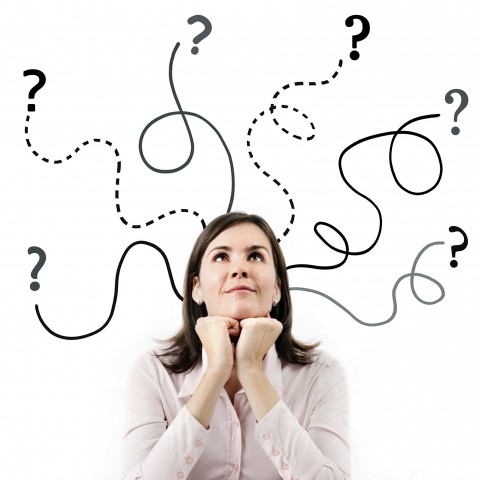
 Table of Contents
Table of Contents
- Bulgarian Pronouns: Saying Me and You
- Let’s Count to 10 in Bulgarian
- The Most Common Noun Categories
- Bulgarian Verbs: Add More Activity to Your Knowledge
- Describe Emotions with Bulgarian Adjectives
- Bulgarian Conjunctions
- Other Must-know Bulgarian Words
- How BulgarianPod101 Can Help You Learn the Bulgarian Language
1. Bulgarian Pronouns: Saying Me and You
The first set of words you should add to your Bulgarian vocabulary are the pronouns. These words will allow you to talk about yourself, refer to others, and have conversations about places or objects—even if you don’t know the exact word for what you’re talking about!
There are four pronoun categories we’ll look at:
- Personal pronouns
- Demonstrative pronouns
- Interrogative pronouns
- Question words
Personal Pronouns
There are nine personal pronouns in the Bulgarian language. In a sentence, a personal pronoun takes the place of a noun. Here’s an example:
- Мария обича да работи.
Mariya obicha da raboti.
Maria loves to work.
- Тя обича да работи.
Tya obicha da raboti.
She loves to work.
| Person | Bulgarian pronoun | Bulgarian pronunciation | English |
| 1st person sg. | аз | az | I |
| 2nd person sg. | ти / Вие | ti / Vie | you (casual / formal) |
| 3rd person sg. | той / тя / то | toy / tya / to | he / she / it |
| 1st person pl. | ние | nie | we |
| 2nd person pl. | вие | vie | you |
| 3rd person pl. | те | te | they |
Demonstrative Pronouns
Demonstrative pronouns are helpful when you need to ask about a specific item that you don’t know the name of:
|
|
Car and chair could be replaced with any other noun.
- → Why not try it yourself? Answer the questions above by replacing the objects with some of the nouns listed in the section of this article titled: The Most Common Noun Categories.
Now, here are the Bulgarian demonstrative pronouns:
| Number | Bulgarian pronoun | Bulgarian pronunciation | English |
| Singular | този тази това | tozi tazi tova | this (masculine) this (feminine) this (neuter) |
| Singular | онзи онази онова | onzi onazi onova | that (masculine) that (feminine) that (neuter) |
| Plural | тези | tezi | these |
| Plural | онези | onezi | those |
* As you may have already noticed, only the singular demonstrative pronouns are classified by gender. In plural, they have only one form.

Interrogative Pronouns
Interrogative pronouns make it easy for us to ask questions, so it’s useful to learn the most common ones early on. Please note that, unlike interrogative pronouns in English, those in Bulgarian are classified by gender and number. Let’s see some examples:
#1 Who?
| Number | Bulgarian pronoun | Bulgarian pronunciation | English |
| Singular Plural | кой коя кое кои | koy koya koe koi | who (masculine) who (feminine) who (neuter) who (plural) |
In the following examples, the demonstrative pronouns we mentioned earlier are used along with the interrogative pronouns:
- Кой е този човек?
Koy e tozi chovek?
Who is this person?
- Кои са тези хора?
Koi sa tezi hora?
Who are these people?
* Note that the gender/number of the interrogative pronoun is determined by the noun it’s used with. Човек is masculine, so the masculine form of “who” is used: кой. In the second example, хора is plural so we use the plural form of “who,” which is кои. The same rule also applies to the following interrogative pronouns.
#2 What?
| Number | Bulgarian pronoun | Bulgarian pronunciation | English |
| Singular Plural | какъв каква какво какви | kakav kakva kakvo kakvi | what (masculine) what (feminine) what (neuter) what (plural) |
- Каква е тази кола?
Kakva e tazi kola?
What is this car?
- Какви са студентите?
Kakvi sa studentite?
What are the students like?
#3 Whose?
| Number | Bulgarian pronoun | Bulgarian pronunciation | English |
| Singular Plural | чий чия чие чии | chiy chiya chie chii | whose (masculine) whose (feminine) whose (neuter) whose (plural) |
- Чия е тази книга?
Chiya e tazi kniga?
Whose book is this?
- Чии са тези книги?
Chii sa tezi knigi?
Whose books are these?

Question Words
Unlike interrogative pronouns, Bulgarian question words have only one form; they do not change for gender or number. This means they’re easier to learn!
| Bulgarian question word | Bulgarian pronunciation | English |
| как | kak | how |
| къде | kadе | where |
| кога | kоga | when |
| защо | zashto | why |
| колко | kolko | how many/much |
| накъде | nakade | where to |
| откъде | otkade | where from |
- Накъде отиваш?
Nakade otivash?
Where are you going (to)?
- Откъде идваш?
Otkade idvash?
Where do you come from?
Can’t wait to start asking questions in Bulgarian? Then make sure to study our vocabulary list Top 25 Bulgarian Questions You Need to Know.
2. Let’s Count to 10 in Bulgarian
Numbers are another essential component of Bulgarian for beginners. We use numbers every single day, whether we’re jotting down a phone number or checking prices at the grocery store. To get a nice headstart, study the list below!
| Number | Bulgarian | Pronunciation | English |
| 0 | нула | nula | zero |
| 1 | едно | edno | one |
| 2 | две | dve | two |
| 3 | три | tri | three |
| 4 | четири | chetiri | four |
| 5 | пет | pet | five |
| 6 | шест | shest | six |
| 7 | седем | sedem | seven |
| 8 | осем | osem | eight |
| 9 | девет | devet | nine |
| 10 | десет | deset | ten |
Let’s practice them with a phone number:
+359 / 896 544-271
три пет девет / осем девет шест пет четири четири – две седем едно
tri pet devet / osem devet shest pet chetiri chetiri – dve sedem edno
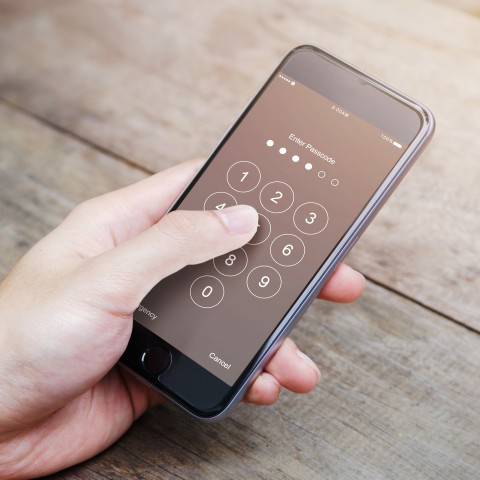
3. The Most Common Noun Categories
Once you have the pronouns and numbers down, you should focus your efforts on picking up as many nouns as you can. Nouns are a crucial set of Bulgarian beginner words to learn, as they can be used alone to get an urgent point across or used with a verb to form a complete thought.
Below, we’ve grouped the most essential nouns into categories for your convenience.
Time
| No. | Bulgarian | Pronunciation | English |
| 1 | час | chas | hour |
| 2 | минута | minuta | minute |
| 3 | секунда | sekunda | second |
| 4 | ден | den | day |
| 5 | седмица | sedmitsa | week |
| 6 | месец | mesets | month |
| 7 | година | godina | year |
| 8 | сутрин | sutrin | morning |
| 9 | следобед | sledobed | afternoon |
| 10 | вечер | vecher | evening |
| 11 | понеделник | ponedelnik | Monday |
| 12 | вторник | vtornik | Tuesday |
| 13 | сряда | sryada | Wednesday |
| 14 | четвъртък | chetvartak | Thursday |
| 15 | петък | petak | Friday |
| 16 | събота | sabota | Saturday |
| 17 | неделя | nedelya | Sunday |
| 18 | време | vreme | time |
| 19 | часовник | chasovnik | clock |
- → You can find several more time-related words and phrases on BulgarianPod101.com!
People
| No. | Bulgarian | Pronunciation | English |
| 1 | професия | profesiya | profession |
| 2 | господин / г-н | gospodin / g-n | Mr. |
| 3 | госпожа / г-жа | gospozha / g-zha | Mrs. |
| 4 | госпожица / г-ца | gospozhitsa | Miss |
| 5 | роднина | rodnina | relative |
| 6 | семейство | semeystvo | family |
| 7 | приятел | priyatel | friend |
| 8 | баща | bashta | father |
| 9 | майка | mayka | mother |
| 10 | брат | brat | brother |
| 11 | сестра | sestra | sister |
| 12 | баба | baba | grandmother |
| 13 | дядо | dyado | grandfather |
| 14 | чичо | chicho | uncle |
| 15 | леля | lelya | aunt |
| 16 | братовчед | bratovched | cousin (male) |
| 17 | братовчедка | bratovchedka | cousin (female) |
| 18 | съпруг | saprug | husband |
| 19 | съпруга | sapruga | wife |

Places Around Town
| No. | Bulgarian | Pronunciation | English |
| 1 | център | tsentar | city center |
| 2 | квартал | kvartal | borough |
| 3 | магазин | magazin | shop |
| 4 | училище | uchilishte | school |
| 5 | болница | bolnitsa | hospital |
| 6 | община | obshtina | municipality |
| 7 | аптека | apteka | pharmacy |
| 8 | парк | park | park |
| 9 | университет | universitet | university |
| 10 | библиотека | biblioteka | library |
| 11 | църква | tsarkva | church |
| 12 | град | grad | city |
| 13 | столица | stolitsa | capital |
| 14 | държава | darzhava | country |
School/Office Essentials
| No. | Bulgarian | Pronunciation | English |
| 1 | тетрадка | tetradka | notebook |
| 2 | учебник | uchebnik | textbook |
| 3 | химикал | himikal | pen |
| 4 | молив | moliv | pencil |
| 5 | гума | guma | eraser |
| 6 | линия | liniya | ruler |
| 7 | папка | papka | folder |
| 8 | стол | stol | chair |
| 9 | бюро | byuro | desk |
| 10 | компютър | kompyutar | computer |
| 11 | клавиатура | klaviatura | keyboard |
| 12 | мишка | mishka | mouse |
| 13 | екран | ekran | screen |
| 14 | лаптоп | laptop | laptop |
| 15 | дъска | daska | board |
| 16 | маркер | marker | marker |
| 17 | пастел | pastel | crayon |
| 18 | рафт | raft | shelf |
Body Parts
| No. | Bulgarian | Pronunciation | English |
| 1 | око | oko | eye |
| 2 | ухо | uho | ear |
| 3 | уста | usta | mouth |
| 4 | глава | glava | head |
| 5 | коса | kosa | hair |
| 6 | зъб | zab | tooth |
| 7 | ръка | raka | hand |
| 8 | пръст | prast | finger / toe |
| 9 | лакът | lakat | elbow |
| 10 | рамо | ramo | shoulder |
| 11 | корем | korem | abdomen |
| 12 | крак | krak | leg |
| 13 | мускул | muskul | muscle |
| 14 | нокът | nokat | nail |
| 15 | нос | nos | nose |
| 16 | брадичка | bradichka | chin |
| 17 | гръб | grab | back |
| 18 | кръст | krast | waist |
| 19 | бедро | bedro | thigh |
| 20 | врат | vrat | neck |
- → You can further expand your vocabulary with this list of 20 body parts in Bulgarian.
Food
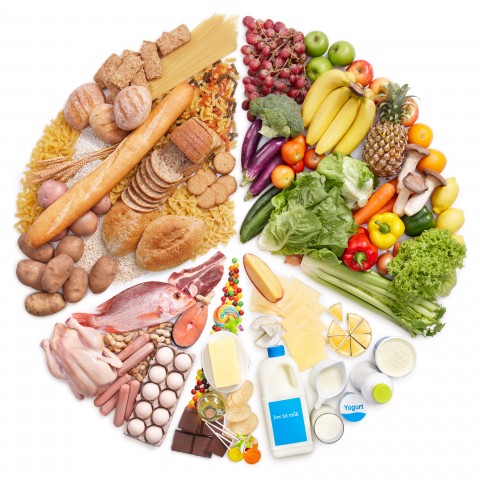
| No. | Bulgarian | Pronunciation | English |
| 1 | храна | hrana | food |
| 2 | хляб | hlyab | bread |
| 3 | месо | meso | meat |
| 4 | яйце | yaytse | egg |
| 5 | сирене | sirene | cheese |
| 6 | кашкавал | kashkaval | yellow cheese |
| 7 | мляко | mlyako | milk |
| 8 | плод | plod | fruit |
| 9 | зеленчук | zelenchuk | vegetable |
| 10 | ябълка | yabalka | apple |
| 11 | круша | krusha | pear |
| 12 | портокал | portokal | orange |
| 13 | мандарина | mandarina | tangerine |
| 14 | диня | dinya | watermelon |
| 15 | пъпеш | papesh | melon |
| 16 | ягода | yagoda | strawberry |
| 17 | череша | cheresha | cherry |
| 18 | малина | malina | raspberry |
| 19 | морков | morkov | carrot |
| 20 | картоф | kartof | potato |
| 21 | зеле | zele | cabbage |
| 22 | тиква | tikva | pumpkin |
| 23 | цвекло | tsveklo | beets |
| 24 | карфиол | karfiol | cauliflower |
| 25 | броколи | brokoli | broccoli |
- → See our free vocabulary list of Bulgarian words for food and ingredients if you would like to dig deeper.
4. Bulgarian Verbs: Add More Activity to Your Knowledge

There are many different verbs that Bulgarian beginners will benefit from learning early on. We’ve created two lists: one for verbs you might use to describe your daily routine and another for miscellaneous verbs you’ll hear often.
Daily Routine Verbs
| No. | Bulgarian | Pronunciation | English |
| 1 | събуждам се | sabuzhdam se | wake up |
| 2 | ставам | stavam | get up |
| 3 | мия се | miya se | wash up |
| 4 | закусвам | zakusvam | have breakfast |
| 5 | обядвам | obyadvam | have lunch |
| 6 | вечерям | vecheryam | have dinner |
| 7 | работя | rabotya | work |
| 8 | уча | ucha | study |
| 9 | отивам | otivam | go |
| 10 | връщам се | vrashtam se | return |
| 11 | пазарувам | pazaruvam | shop |
| 12 | купувам | kupuvam | buy |
| 13 | обличам | oblicham | dress |
| 14 | събличам | sablicham | undress |
| 15 | обувам | obuvam | put on shoes |
| 16 | събувам | sabuvam | take off shoes |
| 17 | мисля | mislya | think |
| 18 | мечтая | mechtaya | dream |
| 19 | творя | tvorya | create |
| 20 | готвя | gotvya | cook |
| 21 | чистя | chistya | clean |
| 22 | прибирам | pribiram | clean up |
| 23 | разхвърлям | razhvarlyam | scatter |
| 24 | слушам | slusham | listen |
| 25 | гледам | gledam | watch |
Other Common Verbs
| No. | Bulgarian | Pronunciation | English |
| 1 | чета | cheta | read |
| 2 | пиша | pisha | write |
| 3 | вземам | vzemam | pick up |
| 4 | обичам | obicham | love |
| 5 | харесвам | haresvam | like |
| 6 | мразя | mrazya | hate |
| 7 | давам | davam | give |
| 8 | правя | pravya | do |
| 9 | ходя | hodya | walk |
| 10 | разхождам се | razhozhdam se | take a walk |
| 11 | карам | karam | drive |
| 12 | пия | piya | drink |
| 13 | ям | yam | eat |
| 14 | питам | pitam | ask |
| 15 | отговарям | otgovaryam | answer |
| 16 | усмихвам се | usmihvam se | smile |
| 17 | търся | tarsya | look for |
| 18 | намирам | namiram | find |
| 19 | бягам | byagam | run |
| 20 | разбирам | razbiram | understand |
| 21 | показвам | pokazvam | show |
| 22 | научавам | nauchavam | learn |
| 23 | говоря | govorya | speak |
| 24 | мълча | malcha | keep silent |
| 25 | искам | iskam | want |
- → BulgarianPod101 provides you with a useful list of the 50 most common Bulgarian verbs along with their pronunciation and translation.
5. Describe Emotions with Bulgarian Adjectives
Learning the most popular Bulgarian adjectives will allow you to describe different people, things, feelings, and emotions more easily. We’ve divided them into four different groups.
Adjectives that describe people
All the adjectives in this section are presented in two forms; the first form is masculine and the second is feminine. For example:
- красив мъж (krasiv mazh) – handsome man
- красива жена (krasiva zhena) – beautiful woman
| No. | Bulgarian | Pronunciation | English |
| 1 | красив / красива | krasiv / krasiva | beautiful |
| 2 | симпатичен / симпатична | simpatichen / simpatichna | cute |
| 3 | мил / мила | mil / mila | kind |
| 4 | добър / добра | dobar / dobra | good |
| 5 | висок / висока | visok / visoka | tall |
| 6 | нисък / ниска | nisak / niska | short |
| 7 | строен / стройна | stroen / stroina | slender |
| 8 | дебел / дебела | debel / debela | fat |
| 9 | слаб / слаба | slab / slaba | slim |
| 10 | умен / умна | umen / umna | clever |
| 11 | глупав / глупава | glupav / glupava | stupid |
| 12 | работлив / работлива | rabotliv / rabotliva | hardworking |
| 13 | мързелив / мързелива | marzeliv / marzeliva | lazy |
Adjectives that describe objects
All the adjectives in this section are presented in three forms: masculine, feminine, and neuter. Unlike in the English language, nouns in Bulgarian are assigned grammatical gender and the adjective used with that noun must agree with it in gender. For example:
- голям стол (golyam stol) – big chair
- голяма топка (golyama topka) – big ball
- голямо легло (golyamo leglo) – big bed
| No. | Bulgarian | Pronunciation | English |
| 1 | голям / голяма / голямо | golyam / golyama / golyamo | big |
| 2 | малък / малка / малко | malak / malka / malko | small |
| 3 | дълъг / дълга / дълго | dalag / dalga / dalgo | long |
| 4 | къс / къса / късо | kas / kasa / kaso | short |
| 5 | пъстър / пъстра / пъстро | pastar / pastra / pastro | colorful |
| 6 | широк / широка / широко | shirok / shiroka / shiroko | wide |
| 7 | стъклен / стъклена / стъклено | staklen / staklena / stakleno | glass / made of glass |
| 8 | метален / метална / метално | metalen / metalna / metalno | metal / made of metal |
| 9 | чуплив / чуплива / чупливо | chupliv / chupliva / chuplivo | fragile |
| 10 | нов / нова / ново | nov / nova / novo | new |
| 11 | стар / стара / старо | star / stara / staro | old |
Adjectives that describe emotions
All the adjectives in this section are presented in two forms: masculine and feminine. It will be useful to know both forms as emotions are usually attributed to people. For example:
- щастлив мъж (shtastliv mazh) – happy man
- щастлива жена (shtastliva zhena) – happy woman
But you should still keep in mind that some person-related words are neuter gender. For example:
- → момче (momche) – boy
→ момиче (momiche) – girl
In the case of the first adjective in the table below, you could easily make the appropriate neuter form of the adjective by changing the ending “-a” from the feminine form to “-o.” For example:
- щастливо момче (shtastlivo momche) – happy boy
- щастливо момиче (shtastlivo momiche) – happy girl
| No. | Bulgarian | Pronunciation | English |
| 1 | щастлив / щастлива | shtastliv / shtastlivа | happy |
| 2 | весел / весела | vesel / vesela | cheerful |
| 3 | тъжен / тъжна | tazhen / tazhna | sad |
| 4 | замислен / замислена | zamislen / zamislena | thoughtful |
| 5 | угрижен / угрижена | ugrizhen / ugrizhena | worried |
| 6 | самотен / самотна | samoten / samotna | lonely |
| 7 | изненадан / изненадана | iznenadan / iznenadana | surprised |
| 8 | усмихнат / усмихната | usmihnat / usmihnata | smiling |
Adjectives that describe the weather
We present here only the form for neuter gender, because the word време (vreme), or “weather,” is a neuter noun in Bulgarian. For this reason, when describing the weather outside, we use only adjectives in neuter form.
Examples:
- слънчево време (slanchevo vreme) – sunny weather
- Навън е слънчево. (Navan e slanchevo.) – It is sunny outside.
| No. | Bulgarian | Pronunciation | English |
| 1 | слънчево | slanchevo | sunny |
| 2 | дъждовно | dazhdovno | rainy |
| 3 | облачно | oblachno | cloudy |
| 4 | ветровито | vetrovito | windy |
| 5 | хубаво | hubavo | nice |
| 6 | снежно | snezhno | snowy |
| 7 | мрачно | mrachno | gloomy |
- → Head over to our list of the top 15 weather conditions for even more practical words!
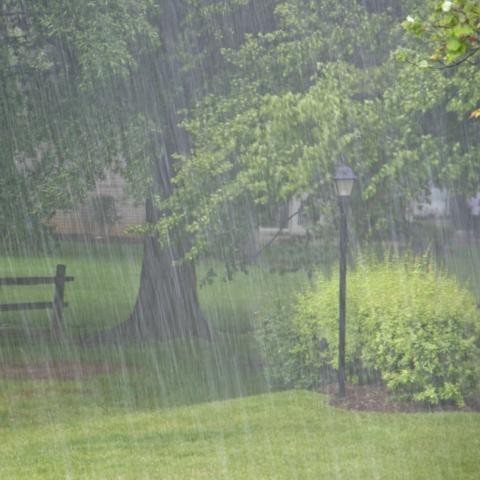
6. Bulgarian Conjunctions
Conjunctions are short words that link together, oppose, or separate other words or phrases in the sentence. Here are some Bulgarian conjunctions that are useful to know:
| No. | Bulgarian | Pronunciation | English |
| 1 | и | i | and |
| 2 | но | no | but |
| 3 | а | a | but |
| 4 | или | ili | or |
| 5 | обаче | obache | however |
| 6 | защото | zashtoto | because |
| 7 | въпреки че | vapreki che | although / even though |
| 8 | тъй като | tay kato | as |
Here are a few samples of their usage:
- Не исках да те обидя, а да ти покажа грешката.
Ne iskah da te obidya, a da ti pokazha greshkata.
I didn’t want to offend you, but I just wanted to show you the mistake.
- Аз те обичам, въпреки че понякога не слушаш.
Az te obicham, vapreki che ponyakoga ne slushash.
I love you, even though sometimes you don’t listen to me.
If you’re looking for even more practical everyday Bulgarian words for absolute beginners, check out our list of 100 core Bulgarian words and get studying!
7. Other Must-know Bulgarian Words
To conclude, let’s look at a few helpful lists of Bulgarian beginner words related to the local culture!
Bulgarian National Holidays
Here are some of the most common Bulgarian holidays:
| No. | Bulgarian | Pronunciation | English |
| 1 | Нова година | nova godina | New Year’s Day |
| Celebrated on January 1 | |||
| 2 | Свети Валентин | sveti valentin | St. Valentine’s Day |
| Celebrated on February 14 | |||
| 3 | Денят на Освобождението на България | denyat na osvobozhdenieto na balgaria | The Day of Liberation of Bulgaria |
| Celebrated on March 3 | |||
| 4 | Денят на жената | denyat na zhenata | Women’s Day |
| Celebrated on March 8 | |||
| 5 | Великден | velikden | Easter |
| Celebrated on a different date each year | |||
| 6 | Денят на труда | denyat na truda | Labor Day |
| Celebrated on May 1 | |||
| 7 | Денят на българската писменост | denyat na balgarskata pismenost | The Day of Bulgarian Culture and Literacy |
| Celebrated on May 24 | |||
| 8 | Денят на народните будители | denyat na narodnite buditeli | The Day of the People’s Awakeners |
| Celebrated on November 1 | |||
| 9 | Бъдни вечер | badni vecher | Christmas Eve |
| Celebrated on December 24 | |||
| 10 | Коледа | koleda | Christmas |
| Celebrated on December 25 | |||
- → In this lesson from BulgarianPod101, you’ll learn even more about Bulgarian national holidays.
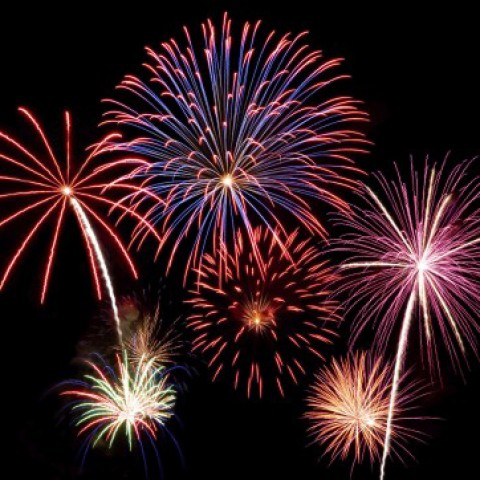
Must-try Foods in Bulgaria
If you visit a Bulgarian restaurant, it’s definitely worth knowing the words listed below. These are the must-try dishes that you wouldn’t want to miss during your stay in Bulgaria!
| No. | Bulgarian | Pronunciation | English |
| 1 | баница | banitsa | banitsa pastry |
| 2 | кисело мляко | kiselo mlyako | Bulgarian yogurt |
| 3 | таратор | tarator | cold yogurt soup |
| 4 | шопска салата | shopska salata | shopska salad |
| 5 | луканка | lukanka | type of dry sausage |
| 6 | боб чорба | bob chorba | bean soup |
| 7 | погача | pogacha | ceremonial bread |
| 8 | пълнени чушки с ориз | palneni chushki s oriz | stuffed peppers with rice |
| 9 | печено агне | pecheno agne | grilled whole lamb |
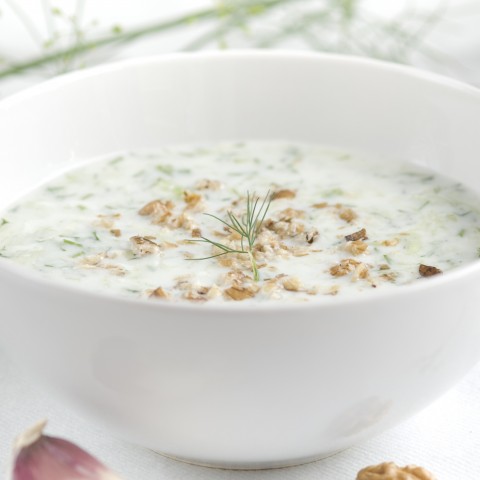
The Most Popular Bulgarian Cities
You may already have heard about the Bulgarian capital, Sofia, but what are the other major Bulgarian cities you might want to visit? Here’s a list of some popular cities in Bulgaria that are preferred tourist destinations.
| No. | Bulgarian | Pronunciation |
| 1 | София | Sofia |
| 2 | Пловдив | Plovdiv |
| 3 | Варна | Varna |
| 4 | Бургас | Burgas |
| 5 | Велико Търново | Veliko Tarnovo |
| 6 | Габрово | Gabrovo |
| 7 | Смолян | Smolyan |
| 8 | Трявна | Tryavna |
| 9 | Банско | Bansko |
| 10 | Созопол | Sozopol |
| 11 | Балчик | Balchik |
- → Learn even more fascinating information about Bulgarian cities and regions in this lesson series prepared by BulgarianPod101.
8. How BulgarianPod101 Can Help You Learn the Bulgarian Language
We believe that this guide to the most common Bulgarian words for beginners will help you build a solid foundation upon which to build your Bulgarian language skills.
The goal of BulgarianPod101 is to help absolute beginners advance quickly. For this reason, we ensured that this article contained the most essential words in a variety of categories! Once you memorize these words, you should be able to understand native speakers in more beginner-level situations.
If you create a free lifetime account with us, you’ll gain access to tons of practical lessons that take a fun approach to learning. We even have an entire series of Bulgarian lessons for beginners, which we highly recommend you check out first.
If you would like to speed up your learning progress even further, you can turn to MyTeacher. This Premium PLUS service allows you to work with a native Bulgarian language expert. He or she will help you learn the basics of vocabulary, grammar, conversations, sentence structure, etc., so you can really start communicating in Bulgarian!
We’d be happy to hear your feedback about this lesson. Please do not hesitate to share your thoughts with us in the comments below! Which of these words did you find most useful, and what are some words you’d still like to learn?










